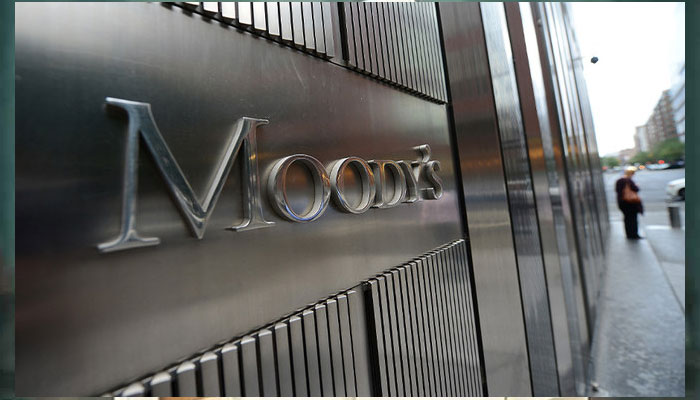Moody's affirms B3 ratings of 5 Pakistani banks, changes outlook to negative
“Moody's has changed the outlook on the banks' long-term deposit ratings to negative from stable,” says the rating agency
KARACHI: Rating agency Moody's on Thursday affirmed the B3 long-term deposit ratings of five leading Pakistani banks and changed their outlook to negative from stable.
The banks are Allied Bank Limited (ABL), Habib Bank Limited (HBL), MCB Bank Limited (MCB), National Bank of Pakistan (NBP) and United Bank Limited (UBL).
“Moody's has changed the outlook on the banks' long-term deposit ratings to negative from stable,” read a statement issued today.
The rating agency has also downgraded the long-term foreign currency Counterparty Risk Ratings of ABL, MCB and UBL to B3 from B2; these ratings are now constrained by the government of Pakistan's foreign currency country ceiling, which was lowered to B3 from B2.
“Today's rating actions follow Moody's decision to change the government of Pakistan's B3 ratings to negative from stable on June 2, 2022, and also lower the country's local and foreign currency country ceilings to B1 and B3, from B3 and B2, respectively,” said Moody’s.
The negative outlook on the sovereign is driven by Pakistan's heightened external vulnerability risk and uncertainty around the sovereign's ability to secure additional external financing to meet its needs, it added.
According to the rating agency, the affirmation of the five Pakistani banks' ratings reflects their stable, deposit-based, funding profiles and adequate liquidity.
While the negative outlook on the bank ratings reflects:
• The rated banks' sizable holding of securities holdings, predominantly sovereign debt securities, at between 5-8 times their shareholders' equity, which links their creditworthiness to that of the government.
• The risk of a further weakening in the government's capacity to support the banks in case of need. The latter is particularly relevant for National Bank of Pakistan and Habib Bank Limited, whose ratings incorporate one notch of government support uplift. More broadly, all five banks' deposit ratings of B3 are at the same rating level as the government, and a potential weakening in the government's credit profile will therefore translate to a weaker credit profile for the banks.
-
Bitcoin plummets toward $60,000 as investors dump risky bets
-
Bitcoin crashes below $63K as regulatory pressure and market fears grow
-
Bitwise Crypto Industry innovators ETF: What investors should do in 2026?
-
Nintendo shares slide again as momentum fears grow
-
Gold, silver prices fallen sharply; What’s driving the drop?
-
Gold’s record climb: Experts question if its safety is ‘overstated’
-
Dubai unveils plans to construct street built with real gold
-
Netflix slams Paramount’s bid: 'Doesn't pass sniff test’ as Warner battle escalates












